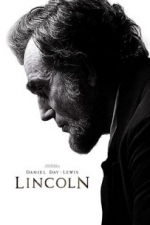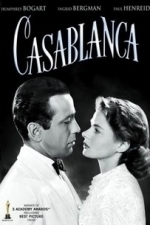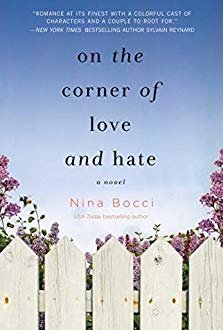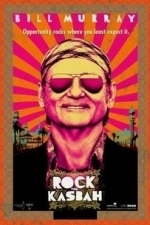Search
Haley Mathiot (9 KP) rated Battlemage in Books
Apr 27, 2018
Battlemage was so exciting. It held on tight and didn’t let go. I was hooked from the very first few sentences from the first chapter and from there it just got better. It was everything I’d hoped it would be. It had an exciting, well thought-out plot, complex and interesting characters, good writing, great humor, and amazing war-time magic. It had an interesting (subtle) religious and political commentary running through it that added dimension to the world. It made it more real. And it had a character that I had to really think about, really pay attention to, to figure out his true identity! I love that. I love a book that makes me think, and that surprises me.
I love good-guy/bad-guy magic. Magic that can take you to higher levels of selflessness and servant-hood and kindness, and that same magic can be used to pull you and everyone around you into filth and degradation. The Source is so powerful that, if used in the wrong hands, can completely break and ruin a person. And we see that in the battlemages. That’s my favorite kind of magic.
The narration was very good. Addis created a perfect voice for the personalities of the characters. He has superb accents and articulation, spoke clearly at a good pace, and took a book that was at 100% great and made it 200% great (which is exactly what the narrator should do! Add to the experience, not take away from it.)
The only thing about Battlemage I thought was slightly lacking was the very end. It was a little abrupt and open. Open in a good way, meaning it immediately demands a sequel. But I felt like the author was like “Hah! It’s over! bwahahahah!” rather than the kind of gentile ease away that leaves the reader feeling satisfied but still excited for what is to come. However I was still highly satisfied with the story, would totally read/listen to it again, and recommend it to anyone 18+.
I love good-guy/bad-guy magic. Magic that can take you to higher levels of selflessness and servant-hood and kindness, and that same magic can be used to pull you and everyone around you into filth and degradation. The Source is so powerful that, if used in the wrong hands, can completely break and ruin a person. And we see that in the battlemages. That’s my favorite kind of magic.
The narration was very good. Addis created a perfect voice for the personalities of the characters. He has superb accents and articulation, spoke clearly at a good pace, and took a book that was at 100% great and made it 200% great (which is exactly what the narrator should do! Add to the experience, not take away from it.)
The only thing about Battlemage I thought was slightly lacking was the very end. It was a little abrupt and open. Open in a good way, meaning it immediately demands a sequel. But I felt like the author was like “Hah! It’s over! bwahahahah!” rather than the kind of gentile ease away that leaves the reader feeling satisfied but still excited for what is to come. However I was still highly satisfied with the story, would totally read/listen to it again, and recommend it to anyone 18+.
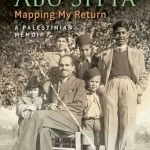
Mapping My Return: A Palestinian Memoir
Book
Salman Abu Sitta, who has single-handedly made available crucial mapping work on Palestine, was just...

The New Yorker Magazine
News and Magazines & Newspapers
App
The New Yorker Magazine app brings you each week’s issue, along with bonus content. The New...
Purple Phoenix Games (2266 KP) rated Terrible Candidates in Tabletop Games
Aug 28, 2020
2020 is a year that will definitely go down in the history books for many reasons. Amidst a global pandemic, a growing civil rights movement, and a hurricane-like storm that ravaged the state of Iowa on August 10th, we ALSO find ourselves in an election year. As if things couldn’t get any crazier, right? Get in the campaigning mood by checking out Terrible Candidates, and remember to get out and vote on November 3rd, America!
Disclaimer: We were provided a copy of Terrible Candidates for the purposes of this review. The components pictured are finalized and are what come in a production copy of the game. I do not intend to rehash the entire rulebook, but rather provide an overview of the rules and general gameplay. -L
Terrible Candidates is a party game in which all players, candidates vying for the Presidency, participate in a series of public debates. At the end of the game, the player who has won the most debates is declared the new President! Setup is simple: Deal 5 Policy cards to each player, place the remaining Policy and Topic cards in the center of the table, place the Dumpster Fire of Democracy card within reach of all players to indicate the discard pile, and keep the President card off to the side.
The gameplay itself is just as simple! Select a pair of neighboring players to be the first debate Candidates. A Topic card is revealed, and the 2 Candidates select a Policy card from their hand to play in this debate. Once the Policy cards are selected, each Candidate gets 30 seconds to explain/debate their selected response to the Topic, providing as many talking points, facts (true or alternative) and other general jargon or nonsense to convince the Media (the non-Candidates for this turn) to vote for them. When both Candidates have made their debates, each member of the Media is allowed to ask one question, providing an extra chance for political shenanigans or hilarity. Once all questions have been asked, the Media votes on which Candidate they believe was the best of the pair, and that winning Candidate keeps the Topic card as their point. The game moves on to the next debate, rotating one person around the group to get a new pair of Candidates – one Candidate from the previous debate, and a new competitor. Play progresses in this manner until all players have participated in 2 debates, thus ending the round. Any players who have no Topic cards (meaning they didn’t win either of their debates in the round) is knocked out of the game, and the next round commences with the remaining players. The second round follows the steps of the first, and when all players have debated twice, the game ends. The player with the most Topic cards is declared the winner and becomes President!
I know that this game might seem like a lot, but it’s honestly not complicated. Each round works as follows: Debate, Question, Vote, and repeat until all players have done 2 debates. If there is one thing that is a must for a party game, it’s a simple set of rules and gameplay to maximize playing time, and Terrible Candidates has adhered to that policy (See what I did there?). The overall atmosphere of the game is reminiscent of CAH, but with a twist. In CAH, all players submit a card and one player is the ultimate judge for the turn, thus allowing players to cater to the personality/sense of humor of that one person. Terrible Candidates is a group effort, meaning that you have to get a majority of the votes in your favor to win the debate. Instead of focusing on one person, you have to be quick-witted and clever enough to find ways to influence all other players. That makes it feel like a more engaging game overall, since all players are involved in every step of the turn.
Obviously, this game has some political implications, but the gameplay can be whatever your group wants it to be. Playing with a group of highly political friends? Maybe it will turn into some intelligent debates and conversations throughout the night. Playing with the fam at a reunion or get-together? Go crazy, make up hilarious stories, and just have a good time. It all depends on your gaming group, and it can be whatever kind of game you want it to be – serious or silly. A caveat with this, as with CAH-esque games, is knowing your group and the kind of humor that is acceptable. Just make sure that however you decide to play, everyone involved is comfortable and having fun!
All in all, I think that Terrible Candidates is a fun and funny little game for everyone involved. As a Candidate, you put your improv skills to the test as you make ridiculous claims or present decent ideas in your 30-second time limit. As a member of the Media, you also get in on a little improv, coming up with a question to ask the Candidates, and then casting your vote for the most convincing side. This game can be so unpredictable, and that’s what helps keep it fresh, entertaining, and funny. Whether you are politically active or not, this game can result in some great times and good conversations among the group. If you’re up for it, take a chance and cast your vote for Terrible Candidates!
Disclaimer: We were provided a copy of Terrible Candidates for the purposes of this review. The components pictured are finalized and are what come in a production copy of the game. I do not intend to rehash the entire rulebook, but rather provide an overview of the rules and general gameplay. -L
Terrible Candidates is a party game in which all players, candidates vying for the Presidency, participate in a series of public debates. At the end of the game, the player who has won the most debates is declared the new President! Setup is simple: Deal 5 Policy cards to each player, place the remaining Policy and Topic cards in the center of the table, place the Dumpster Fire of Democracy card within reach of all players to indicate the discard pile, and keep the President card off to the side.
The gameplay itself is just as simple! Select a pair of neighboring players to be the first debate Candidates. A Topic card is revealed, and the 2 Candidates select a Policy card from their hand to play in this debate. Once the Policy cards are selected, each Candidate gets 30 seconds to explain/debate their selected response to the Topic, providing as many talking points, facts (true or alternative) and other general jargon or nonsense to convince the Media (the non-Candidates for this turn) to vote for them. When both Candidates have made their debates, each member of the Media is allowed to ask one question, providing an extra chance for political shenanigans or hilarity. Once all questions have been asked, the Media votes on which Candidate they believe was the best of the pair, and that winning Candidate keeps the Topic card as their point. The game moves on to the next debate, rotating one person around the group to get a new pair of Candidates – one Candidate from the previous debate, and a new competitor. Play progresses in this manner until all players have participated in 2 debates, thus ending the round. Any players who have no Topic cards (meaning they didn’t win either of their debates in the round) is knocked out of the game, and the next round commences with the remaining players. The second round follows the steps of the first, and when all players have debated twice, the game ends. The player with the most Topic cards is declared the winner and becomes President!
I know that this game might seem like a lot, but it’s honestly not complicated. Each round works as follows: Debate, Question, Vote, and repeat until all players have done 2 debates. If there is one thing that is a must for a party game, it’s a simple set of rules and gameplay to maximize playing time, and Terrible Candidates has adhered to that policy (See what I did there?). The overall atmosphere of the game is reminiscent of CAH, but with a twist. In CAH, all players submit a card and one player is the ultimate judge for the turn, thus allowing players to cater to the personality/sense of humor of that one person. Terrible Candidates is a group effort, meaning that you have to get a majority of the votes in your favor to win the debate. Instead of focusing on one person, you have to be quick-witted and clever enough to find ways to influence all other players. That makes it feel like a more engaging game overall, since all players are involved in every step of the turn.
Obviously, this game has some political implications, but the gameplay can be whatever your group wants it to be. Playing with a group of highly political friends? Maybe it will turn into some intelligent debates and conversations throughout the night. Playing with the fam at a reunion or get-together? Go crazy, make up hilarious stories, and just have a good time. It all depends on your gaming group, and it can be whatever kind of game you want it to be – serious or silly. A caveat with this, as with CAH-esque games, is knowing your group and the kind of humor that is acceptable. Just make sure that however you decide to play, everyone involved is comfortable and having fun!
All in all, I think that Terrible Candidates is a fun and funny little game for everyone involved. As a Candidate, you put your improv skills to the test as you make ridiculous claims or present decent ideas in your 30-second time limit. As a member of the Media, you also get in on a little improv, coming up with a question to ask the Candidates, and then casting your vote for the most convincing side. This game can be so unpredictable, and that’s what helps keep it fresh, entertaining, and funny. Whether you are politically active or not, this game can result in some great times and good conversations among the group. If you’re up for it, take a chance and cast your vote for Terrible Candidates!
Gareth von Kallenbach (980 KP) rated Lincoln (2012) in Movies
Aug 7, 2019
The history of this country is steeped in mystery and intrigue, but it’s fuzzy on the details. We cling to heroes of the past because we are jaded by the present. Lincoln, a new film from Steven Spielberg, comes to us at a time when there seems to be even more political strife than usual. (Or perhaps that’s just me getting older and actually paying attention.) Either way, I think this movie’s arrival on the silver screen is very timely, given the recent election.
Daniel Day Lewis, a man revered for his choice of films and roles, as well as his ability to portray characters with so much emotion and conviction, has done it once again. As the title character for this film, Lewis portrays one of the U.S.A’s greatest leaders and pioneers in a way that few other men could. Surrounded by some of the best actors in Hollywood (including Tommy Lee Jones), this star-studded film has a laundry list of very recognizable faces from all corners of Hollywood. The red carpet was clearly rolled out for this film.
The story starts amid the death and destruction of the American Civil War, an event that is both a fixed point of the story and a constant backdrop. Seeing the fighting and killing made me wonder how gritty this movie would get, but as it turns out, they kept the level of gore pretty low.
The film goes on to set the stage for the final footsteps into the southern theater that was the Civil War. In tandem, it follows the highly controversial 13th amendment, which was barely passed at the time due to racism and the belief that one color of human should be slave to another color. The absurdity of this notion is highlighted, but it’s also familiar in the way it parallels issues we face today: legalizing pot, gay marriage, prostitution, the right to bear arms, etc. Perhaps our grandchildren will watch a film in the future about these struggles, and regard it as we do a film about the Civil War. As I sat and watched this movie, I was nearly in tears at the thought of how African-Americans were once regarded as lesser beings. Will our grandchildren cry at the ridiculousness of our beliefs?
The cinematography was amazingly crisp. Many of the characters are introduced in such a way that they have a grand entrance through the mystique created by camera angles. I have to truly applaud Spielberg for what might be his best film yet. The camera work was immensely effective, relying heavily on the contrast between shadow and light. Coupled with richly detailed sets, it made everything staggeringly realistic, and absolutely convincing.
I will say this for Lincoln: I haven’t been so moved and taken aback by a period film in my life. This is a must see for everyone.
The dialog is highly political, and sometimes goes along at quite a clip; be prepared to miss a few things the first time around. However, watching it a second time surely won’t be a sin. The humor alone merits a second viewing. There are many good laughs to be had.
Lincoln is a work of art.
Daniel Day Lewis, a man revered for his choice of films and roles, as well as his ability to portray characters with so much emotion and conviction, has done it once again. As the title character for this film, Lewis portrays one of the U.S.A’s greatest leaders and pioneers in a way that few other men could. Surrounded by some of the best actors in Hollywood (including Tommy Lee Jones), this star-studded film has a laundry list of very recognizable faces from all corners of Hollywood. The red carpet was clearly rolled out for this film.
The story starts amid the death and destruction of the American Civil War, an event that is both a fixed point of the story and a constant backdrop. Seeing the fighting and killing made me wonder how gritty this movie would get, but as it turns out, they kept the level of gore pretty low.
The film goes on to set the stage for the final footsteps into the southern theater that was the Civil War. In tandem, it follows the highly controversial 13th amendment, which was barely passed at the time due to racism and the belief that one color of human should be slave to another color. The absurdity of this notion is highlighted, but it’s also familiar in the way it parallels issues we face today: legalizing pot, gay marriage, prostitution, the right to bear arms, etc. Perhaps our grandchildren will watch a film in the future about these struggles, and regard it as we do a film about the Civil War. As I sat and watched this movie, I was nearly in tears at the thought of how African-Americans were once regarded as lesser beings. Will our grandchildren cry at the ridiculousness of our beliefs?
The cinematography was amazingly crisp. Many of the characters are introduced in such a way that they have a grand entrance through the mystique created by camera angles. I have to truly applaud Spielberg for what might be his best film yet. The camera work was immensely effective, relying heavily on the contrast between shadow and light. Coupled with richly detailed sets, it made everything staggeringly realistic, and absolutely convincing.
I will say this for Lincoln: I haven’t been so moved and taken aback by a period film in my life. This is a must see for everyone.
The dialog is highly political, and sometimes goes along at quite a clip; be prepared to miss a few things the first time around. However, watching it a second time surely won’t be a sin. The humor alone merits a second viewing. There are many good laughs to be had.
Lincoln is a work of art.
BankofMarquis (1832 KP) rated Vice (2018) in Movies
Jan 21, 2019
Good movie with 2 GREAT performances
Writer/Director Adam McKay was known for years as the writing partner/director of Will Ferrell, having written and directed such comedy gems as ANCHORMAN, TALLADEGA NIGHTS and STEP BROTHERS and then, in 2015, he stepped out of Ferrell's shadow - and the comedy world - and delivered the multi-Oscar nominated film THE BIG SHORT, a fascinating, terrifying and (at times) funny look at the financial crisis of the mid-2000's.
His follow-up to this film is another fascinating, terrifying and (at times) funny look at a serious subject - the life and career of former Vice President Dick Cheney, an unassuming bureaucrat that wields much power in the George W. Bush White House. I thought THE BIG SHORT worked on every level so was looking forward to this follow-up and this one works on MOST levels.
So..what does work? Let's start with the acting of the top-notch cast. Steve Carrell, Sam Rockwell, Lily Rabe, Justin Kirk and Tyler Perry all are terrific in smaller, supporting roles that depict real people (like Donald Rumsfeld, George W. Bush, Liz Cheney, Scooter LIbbey and Colin Powell, respectively). They all bring the necessary level of gravitas and ironic humor to their parts.
But...make no mistake...this film stars and IS ABOUT Lynne and Dick Cheney (Amy Adams and Christian Bale) and both of these two stars SHINE BRIGHTLY in their portrayal of a a Washington DC power couple who are always calculating the political angle of any issue and how they can benefit from it. I expect both of these two actors to get Oscar nominations.
What also works is the pseduo-documentary style that McKay brings to the screen (similar to THE BIG SHORT), the characters, at times, speak directly to the camera to explain something or (at one time) breaks into a Shakespearean scene to emphasize what's going on.
So...what doesn't work? I'm going to start with the Narrator of this piece, Jesse Plemons. He is a solid actor who can bring a wry sense of humor - or gravitas - to the proceedings. But, to be plain about it, Plemons narrator character (who we come to find out has a VERY big role in Cheney's life) is just not interesting enough to follow or listen to. In THE BIG SHORT, this role was filled by the charm and charisma of Ryan Gosling and, I'm afraid, Plemons just doesn't have that same level of charm and charisma.
Secondly, what didn't work for me was the people/events that were unfolding in front of me. There was NOT ONE character to root for on the screen. Every politician seen upon the screen was just out for themselves and were willing to screw (or stab in the back) anyone that is no longer any use for them. These are not very likable characters and I longed for someone to root for, which made this film fall short of "GREAT" status for me. It is a very good film - strongly acted - but not a GREAT film.
If you haven't seen it, I would recommend VICE to all if, for nothing else, the performances of Adams and Bale, they are mesmerizing, just don't expect to root for anyone.
Letter Grade B+
8 (out of 10) stars and you can take that to the Bank(ofMarquis)
His follow-up to this film is another fascinating, terrifying and (at times) funny look at a serious subject - the life and career of former Vice President Dick Cheney, an unassuming bureaucrat that wields much power in the George W. Bush White House. I thought THE BIG SHORT worked on every level so was looking forward to this follow-up and this one works on MOST levels.
So..what does work? Let's start with the acting of the top-notch cast. Steve Carrell, Sam Rockwell, Lily Rabe, Justin Kirk and Tyler Perry all are terrific in smaller, supporting roles that depict real people (like Donald Rumsfeld, George W. Bush, Liz Cheney, Scooter LIbbey and Colin Powell, respectively). They all bring the necessary level of gravitas and ironic humor to their parts.
But...make no mistake...this film stars and IS ABOUT Lynne and Dick Cheney (Amy Adams and Christian Bale) and both of these two stars SHINE BRIGHTLY in their portrayal of a a Washington DC power couple who are always calculating the political angle of any issue and how they can benefit from it. I expect both of these two actors to get Oscar nominations.
What also works is the pseduo-documentary style that McKay brings to the screen (similar to THE BIG SHORT), the characters, at times, speak directly to the camera to explain something or (at one time) breaks into a Shakespearean scene to emphasize what's going on.
So...what doesn't work? I'm going to start with the Narrator of this piece, Jesse Plemons. He is a solid actor who can bring a wry sense of humor - or gravitas - to the proceedings. But, to be plain about it, Plemons narrator character (who we come to find out has a VERY big role in Cheney's life) is just not interesting enough to follow or listen to. In THE BIG SHORT, this role was filled by the charm and charisma of Ryan Gosling and, I'm afraid, Plemons just doesn't have that same level of charm and charisma.
Secondly, what didn't work for me was the people/events that were unfolding in front of me. There was NOT ONE character to root for on the screen. Every politician seen upon the screen was just out for themselves and were willing to screw (or stab in the back) anyone that is no longer any use for them. These are not very likable characters and I longed for someone to root for, which made this film fall short of "GREAT" status for me. It is a very good film - strongly acted - but not a GREAT film.
If you haven't seen it, I would recommend VICE to all if, for nothing else, the performances of Adams and Bale, they are mesmerizing, just don't expect to root for anyone.
Letter Grade B+
8 (out of 10) stars and you can take that to the Bank(ofMarquis)
DaveySmithy (107 KP) rated Casablanca (1942) in Movies
Dec 3, 2024
A Timeless Classic: Casablanca - A 10/10 Masterpiece
Few films manage to withstand the test of time quite like Casablanca. Released in 1942, this cinematic gem not only defines its era but also transcends it, continuing to captivate audiences decades later. Directed by Michael Curtiz and featuring unforgettable performances by Humphrey Bogart and Ingrid Bergman, Casablanca is a rare film that combines stellar storytelling, iconic performances, and a profound emotional core into an unparalleled movie experience.
What makes Casablanca truly extraordinary is its perfect balance of intimate romance and global stakes. Set during World War II in the Moroccan city of Casablanca, the story revolves around Rick Blaine (Bogart), a cynical American expatriate who runs a nightclub, and Ilsa Lund (Bergman), the woman who once broke his heart. Their unexpected reunion is fraught with unresolved emotions and set against the backdrop of political intrigue, resistance efforts, and the shadow of Nazi oppression. It’s not just a love story—it’s a story of sacrifice, morality, and the search for meaning in chaotic times.
Humphrey Bogart, known for his tough-guy persona, delivers a nuanced and deeply human performance as Rick. His dry wit, vulnerability, and quiet heroism make Rick one of cinema’s most iconic characters. Bogart effortlessly conveys the tension between Rick’s outward indifference and his inner turmoil, making his journey from apathy to sacrifice profoundly moving. Opposite him, Ingrid Bergman is luminous as Ilsa. Her portrayal is layered with strength, grace, and a quiet sadness that makes her character unforgettable. The chemistry between Bogart and Bergman is electric, their unspoken longing resonating in every glance and line of dialogue.
The supporting cast is equally brilliant. Claude Rains as the charmingly corrupt Captain Renault steals nearly every scene he’s in with his biting humor and moral ambiguity. Paul Henreid’s portrayal of Victor Laszlo, the noble resistance leader, adds gravitas to the story, while Sydney Greenstreet and Peter Lorre deliver memorable turns as colorful figures in Casablanca’s shadowy underworld. Every character, no matter how small their role, feels fully realized and essential to the tapestry of the story.
What elevates Casablanca to legendary status, however, is its script. Few films boast dialogue as sharp and iconic, with lines like “Here’s looking at you, kid,” and “We’ll always have Paris” becoming ingrained in pop culture. The screenplay, penned by Julius and Philip Epstein and Howard Koch, is a masterclass in storytelling, seamlessly blending romance, suspense, and humor. Each scene serves a purpose, driving the plot forward while deepening the emotional stakes.
Max Steiner’s score is another standout element, with the recurring use of “As Time Goes By” becoming as timeless as the film itself. The music weaves through the narrative, underscoring moments of joy, heartbreak, and tension with haunting beauty.
But perhaps the most remarkable aspect of Casablanca is its ability to resonate on multiple levels. It’s a sweeping romance, a gripping war drama, and a meditation on sacrifice and duty, all rolled into one. Its themes remain universal, its characters relatable, and its emotional impact undiminished by time.
In a world filled with good movies and great movies, Casablanca stands apart as a perfect one. It’s not just a film—it’s an experience, a masterpiece that speaks to the heart and soul. For that, it earns a well-deserved 10/10.
What makes Casablanca truly extraordinary is its perfect balance of intimate romance and global stakes. Set during World War II in the Moroccan city of Casablanca, the story revolves around Rick Blaine (Bogart), a cynical American expatriate who runs a nightclub, and Ilsa Lund (Bergman), the woman who once broke his heart. Their unexpected reunion is fraught with unresolved emotions and set against the backdrop of political intrigue, resistance efforts, and the shadow of Nazi oppression. It’s not just a love story—it’s a story of sacrifice, morality, and the search for meaning in chaotic times.
Humphrey Bogart, known for his tough-guy persona, delivers a nuanced and deeply human performance as Rick. His dry wit, vulnerability, and quiet heroism make Rick one of cinema’s most iconic characters. Bogart effortlessly conveys the tension between Rick’s outward indifference and his inner turmoil, making his journey from apathy to sacrifice profoundly moving. Opposite him, Ingrid Bergman is luminous as Ilsa. Her portrayal is layered with strength, grace, and a quiet sadness that makes her character unforgettable. The chemistry between Bogart and Bergman is electric, their unspoken longing resonating in every glance and line of dialogue.
The supporting cast is equally brilliant. Claude Rains as the charmingly corrupt Captain Renault steals nearly every scene he’s in with his biting humor and moral ambiguity. Paul Henreid’s portrayal of Victor Laszlo, the noble resistance leader, adds gravitas to the story, while Sydney Greenstreet and Peter Lorre deliver memorable turns as colorful figures in Casablanca’s shadowy underworld. Every character, no matter how small their role, feels fully realized and essential to the tapestry of the story.
What elevates Casablanca to legendary status, however, is its script. Few films boast dialogue as sharp and iconic, with lines like “Here’s looking at you, kid,” and “We’ll always have Paris” becoming ingrained in pop culture. The screenplay, penned by Julius and Philip Epstein and Howard Koch, is a masterclass in storytelling, seamlessly blending romance, suspense, and humor. Each scene serves a purpose, driving the plot forward while deepening the emotional stakes.
Max Steiner’s score is another standout element, with the recurring use of “As Time Goes By” becoming as timeless as the film itself. The music weaves through the narrative, underscoring moments of joy, heartbreak, and tension with haunting beauty.
But perhaps the most remarkable aspect of Casablanca is its ability to resonate on multiple levels. It’s a sweeping romance, a gripping war drama, and a meditation on sacrifice and duty, all rolled into one. Its themes remain universal, its characters relatable, and its emotional impact undiminished by time.
In a world filled with good movies and great movies, Casablanca stands apart as a perfect one. It’s not just a film—it’s an experience, a masterpiece that speaks to the heart and soul. For that, it earns a well-deserved 10/10.
Kristy H (1252 KP) rated On the Corner of Love and Hate in Books
Sep 2, 2019
Emma Peroni works in the Community Development Office (CDO) in the small town of Hope Lake. She works with her childhood friend Cooper Campbell-Endicott, who is now running for office as mayor of Hope Lake. Cooper has a political pedigree; his mother is governor. He's the beloved golden boy of Hope Lake. But he also has a playboy reputation, and his opponent, Kirby, is capitalizing on it. If Cooper loses, Kirby will set back all the progress of the CDO in Hope Lake. So the current mayor--who just happens to be Emma's father--devises a plan. Emma will manage Cooper's campaign, and he will pretend to settle down with a former girlfriend. Emma and Cooper haven't gotten along since college, but the more time they spend together now, the more feelings get stirred up: anger, resentment, and... lust.
So I think it does a disservice to bill this book as a Christina Lauren-type romance, as I went in expecting a certain type of story and it just didn't deliver. I believe if I just read it as a romance, I might have enjoyed it more. And, please note, that a 3-star review isn't bad (!), I just didn't 4-star love love it.
The book is set up with the "love/hate" premise. We have hard-working Emma, who is scared of commitment and letting down her guard. Meanwhile, Cooper needs to buckle down and get serious about everything in his life. Emma holds a long-standing grudge against Cooper, but, of course, oh there are feelings, right? The problem is that things get repetitive: so much fighting about his bad behavior and then her thinking over and over about her feelings. (Of course she doesn't have feelings for Cooper, she hates him, etc.). We all know they are going to show some spark together, but good grief, it takes forever.
"He might have been the single most irritating person in the world to me, but still, I could appreciate his appearance."
Also, while I liked that there were political things woven into this novel, my goodness, I've never seen such drama over a mayoral race in my life. Is this a small town thing, or something? I have lived in small towns. The attention and drama focused on this race felt like a senatorial campaign and there was little explanation why Cooper's opponent was so bad, except that he was, indeed, really bad and would ruin the whole town, so this portion felt very two-dimensional. (Oh and if Emma called her father "Mayor Dad" one more time, I was going to scream.)
Still, this is a cute read. There are some really fun scenes with Emma's friends--she, Nick, Henry, and Cooper have been pals since they were kids. There is wit and humor throughout the book. I could certainly identify with Emma, being a closed off workaholic myself! The small town vibe in this book is really adorable--Hope Lake practically flies off the page, and it's a very atmospheric setting.
And, let's be honest: a love/hate dynamic is enjoyable. We pick up a romance knowing exactly what we are getting into. Cooper was a bit irritating at times, but it still boils down that I'm a total sucker for a sappy love story and the chosen two getting together. I was rooting for these two, and I liked the end of the book. This was a sweet, funny read overall. 3 stars.
So I think it does a disservice to bill this book as a Christina Lauren-type romance, as I went in expecting a certain type of story and it just didn't deliver. I believe if I just read it as a romance, I might have enjoyed it more. And, please note, that a 3-star review isn't bad (!), I just didn't 4-star love love it.
The book is set up with the "love/hate" premise. We have hard-working Emma, who is scared of commitment and letting down her guard. Meanwhile, Cooper needs to buckle down and get serious about everything in his life. Emma holds a long-standing grudge against Cooper, but, of course, oh there are feelings, right? The problem is that things get repetitive: so much fighting about his bad behavior and then her thinking over and over about her feelings. (Of course she doesn't have feelings for Cooper, she hates him, etc.). We all know they are going to show some spark together, but good grief, it takes forever.
"He might have been the single most irritating person in the world to me, but still, I could appreciate his appearance."
Also, while I liked that there were political things woven into this novel, my goodness, I've never seen such drama over a mayoral race in my life. Is this a small town thing, or something? I have lived in small towns. The attention and drama focused on this race felt like a senatorial campaign and there was little explanation why Cooper's opponent was so bad, except that he was, indeed, really bad and would ruin the whole town, so this portion felt very two-dimensional. (Oh and if Emma called her father "Mayor Dad" one more time, I was going to scream.)
Still, this is a cute read. There are some really fun scenes with Emma's friends--she, Nick, Henry, and Cooper have been pals since they were kids. There is wit and humor throughout the book. I could certainly identify with Emma, being a closed off workaholic myself! The small town vibe in this book is really adorable--Hope Lake practically flies off the page, and it's a very atmospheric setting.
And, let's be honest: a love/hate dynamic is enjoyable. We pick up a romance knowing exactly what we are getting into. Cooper was a bit irritating at times, but it still boils down that I'm a total sucker for a sappy love story and the chosen two getting together. I was rooting for these two, and I liked the end of the book. This was a sweet, funny read overall. 3 stars.
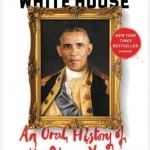
Black Man, White House: An Oral History of the Obama Years
Book
New York Times Bestseller (Humor) "The book everyone is laughing about!"--Joe Scarborough, Morning...
Gareth von Kallenbach (980 KP) rated Rock the Kasbah (2016) in Movies
Aug 6, 2019
Music is a language that transcends race, gender, age, and nationality. It is timeless. It is transformative. Music has the power to shape and redefine culture. In Rock the Kasbah, Bill Murray plays Richie Lanz, a washed up Rock manager who seeks to bring one of his acts to Afghanistan as part of the USO tour. Within the first day of arrival, his plans are unraveled as his singer (Zooey Deschanel) panics and runs off with his money and passport in order to return back to America.
After meeting a myriad of characters (Bruce Willis, Kate Hudson. Danny McBride) in Kabul, he is presented with a new opportunity to introduce the world to a true talent. He discovers a young Pashtun girl with an amazing voice who dreams of being able to compete on “Afghan Star,” a musical competition show similar to “American Idol.” Cultural norms forbid her from singing and participating in the competition which demonstrate the complexity of Afghan culture, history, and politics. Understanding the threat to himself and Salima (Leem Lubany), Richie arranges for her to appear on the show, defying traditions and customs.
The film itself is a decent adaptation of the real story captured in the documentary Afghan Star which examines the life of Setara who must go into hiding because of her appearance in the competition. Rock the Kasbah has moments of genuine humor which fully utilizes Bill Murray’s true talents. Unfortunately, there are points where the plot and the storyline does not seem to fit together seamlessly. One great aspect of the film is its use of music to demonstrate the reach that it has across cultural lines. The love of music and artistic expression which had been severely restricted during the years of Taliban rule and Mujahedeen influence survived and is emblematic of how the people and the culture is much more complex and relatable than many would assume. This film goes beyond a story of a young singer trying to express herself and a manager trying to reclaim the glory of years ago. It is about the culture, history, and political framework of Afghanistan and the Afghan people.
It promotes them in a more positive light without relegating them to being a monolithic culture and people. It provides more insight into the circumstances that many of the people both in the cities and the tribal regions deal with. Audiences will be satisfied Rock the Kasbah as it is a musical and comedic showcase. They may even find themselves singing “Wild World” long after the credits roll.
After meeting a myriad of characters (Bruce Willis, Kate Hudson. Danny McBride) in Kabul, he is presented with a new opportunity to introduce the world to a true talent. He discovers a young Pashtun girl with an amazing voice who dreams of being able to compete on “Afghan Star,” a musical competition show similar to “American Idol.” Cultural norms forbid her from singing and participating in the competition which demonstrate the complexity of Afghan culture, history, and politics. Understanding the threat to himself and Salima (Leem Lubany), Richie arranges for her to appear on the show, defying traditions and customs.
The film itself is a decent adaptation of the real story captured in the documentary Afghan Star which examines the life of Setara who must go into hiding because of her appearance in the competition. Rock the Kasbah has moments of genuine humor which fully utilizes Bill Murray’s true talents. Unfortunately, there are points where the plot and the storyline does not seem to fit together seamlessly. One great aspect of the film is its use of music to demonstrate the reach that it has across cultural lines. The love of music and artistic expression which had been severely restricted during the years of Taliban rule and Mujahedeen influence survived and is emblematic of how the people and the culture is much more complex and relatable than many would assume. This film goes beyond a story of a young singer trying to express herself and a manager trying to reclaim the glory of years ago. It is about the culture, history, and political framework of Afghanistan and the Afghan people.
It promotes them in a more positive light without relegating them to being a monolithic culture and people. It provides more insight into the circumstances that many of the people both in the cities and the tribal regions deal with. Audiences will be satisfied Rock the Kasbah as it is a musical and comedic showcase. They may even find themselves singing “Wild World” long after the credits roll.


